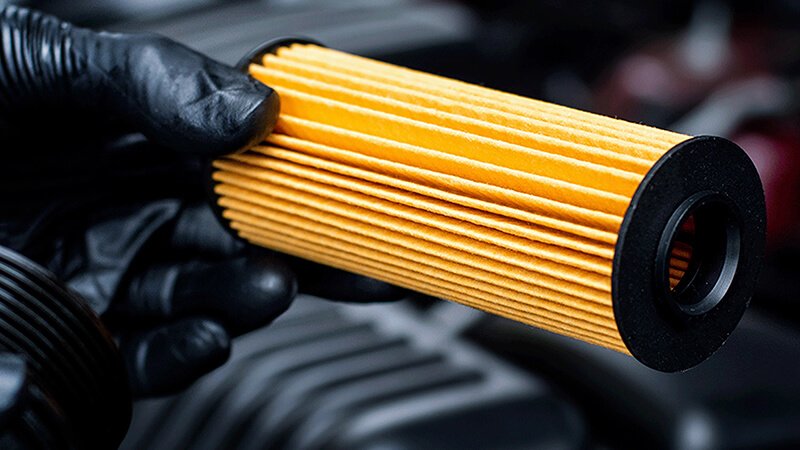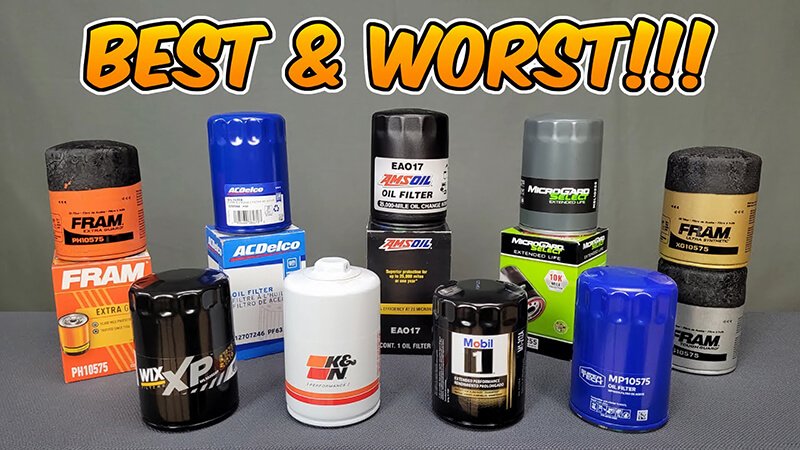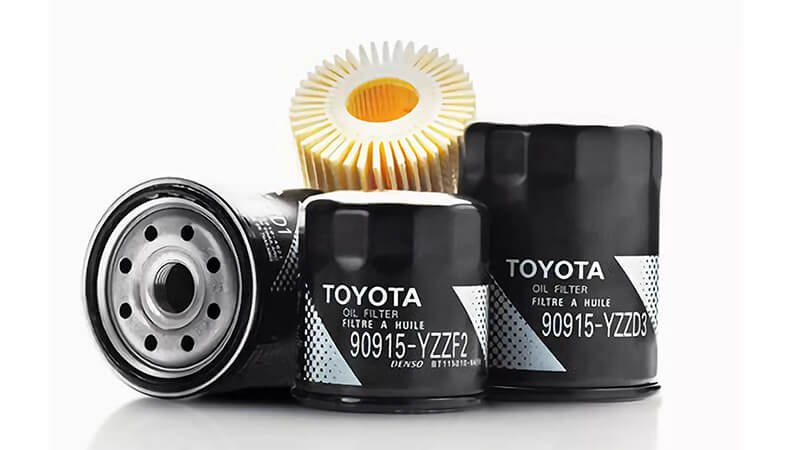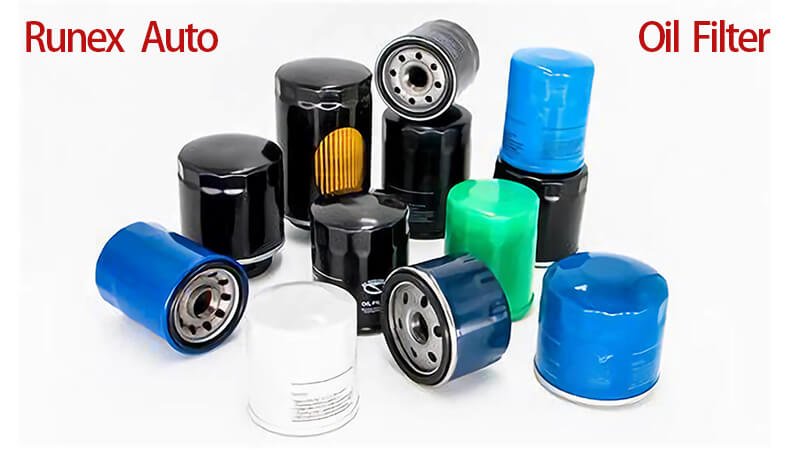Reusing engine oil sounds like a cost-saving solution, but is it feasible? Many wonder if used engine oil can be filtered and reused effectively in their vehicles. In this article, we’ll dive into the filtration process and why it’s not as simple as it sounds.
While it’s technically possible to filter and reuse engine oil, it requires specialized equipment and an understanding of the additives that need replenishing. Reusing oil without the proper process can harm your engine in the long run.
Before diving into the specifics of how to filter used oil, it's important to understand the challenges involved. Let’s take a closer look at whether reusing motor oil is worth the effort and what materials can help with filtration.

Can you filter used motor oil and reuse it?
The idea of filtering and reusing used engine oil is attractive to some, especially considering the costs of buying new oil. But is it safe to reuse? Let’s look at the complexities of the process and what needs to be done for safe reuse.
Yes, you can filter used motor oil, but it’s not as simple as just running it through a filter. The oil must undergo a detailed cleaning process to remove contaminants and replenish the necessary additives.
Reusing engine oil involves more than just filtration. While it’s possible to filter the oil, there are many factors to consider before reuse. Used motor oil contains contaminants like dirt, metal shavings, and combustion byproducts. These need to be removed to prevent engine damage.
Filtering used oil involves using specialized equipment, such as centrifugal purifiers or bypass filtration systems. Centrifugal purifiers spin the oil at high speeds to separate contaminants based on their density, while bypass filtration systems filter oil continuously in a secondary loop. Both methods are effective, but they have limitations. For instance, centrifugal purifiers are good at removing larger particles but may not catch smaller contaminants, which could still affect engine performance. On the other hand, bypass filtration offers a more thorough filtration but requires a secondary filtration loop and is typically used in high-performance or heavy-duty engines.
Additionally, even after filtration, there’s still the issue of the oil’s additives. Engine oil contains various additives, such as detergents, dispersants, and anti-wear agents, which degrade over time. These additives need to be replenished for the oil to perform correctly. Without this, reusing the oil could result in poor lubrication, increased engine wear, and even engine failure.
Given these complexities, it’s generally not recommended for the average vehicle owner to filter and reuse their oil. Instead, it’s better to leave this task to professionals or use high-quality filters designed to extend the oil's lifespan for regular use.
| Filtration Method | Pros | Cons |
|---|---|---|
| Centrifugal Purifiers1 | Removes larger particles well | May miss smaller contaminants |
| Bypass Filtration2 | More thorough filtration | Requires secondary loop, complex setup |
| Traditional Oil Filters | Easy to use and maintain | Limited to removing larger particles |
| Oil Reconditioning | Restores additive properties | Requires specialized equipment |

How to filter oil to reuse?
If you’re determined to filter and reuse your engine oil, understanding the process and equipment involved is crucial. Here’s a guide on the best filtration methods for used oil.
To filter oil for reuse, you need to use high-performance filtration systems, like centrifugal purifiers or bypass filters, and make sure to replace the lost additives. DIY filtration isn’t advisable due to the complexity of the task.
Filtration for reuse requires more than just a basic filter. While simple oil filters can remove large particles, they aren't sufficient for cleaning the oil completely. The oil filtration system needs to be capable of filtering contaminants like soot, metal particles, and combustion byproducts. Two commonly used methods for this are centrifugal purifiers and bypass filtration systems.
-
- These systems use high-speed spinning to separate particles based on their density. The contaminants are forced to the outer edges, allowing clean oil to flow through. However, they are more effective at removing larger particles and might leave behind smaller, potentially harmful contaminants.
-
- Bypass filtration uses a secondary filtration loop that continuously filters the oil, providing a more thorough cleaning. It works by removing finer contaminants, ensuring that the oil is cleaner and more effective. This method is often used in industrial or high-performance engines where extended oil life is critical. However, it requires additional setup and maintenance.
-
- Reconditioning systems can be used to remove contaminants and restore the oil’s additive package. These systems replace the depleted additives and bring the oil back to its original quality. However, they are expensive and generally used in specialized applications.
-
DIY Filtration:
- While it might sound tempting to try a DIY approach using a simple filter, this isn’t advisable. Basic filters do not remove all types of contaminants, and there's a risk of leaving harmful residues that could cause engine damage.
For a more reliable process, you would also need to replace the oil’s depleted additives. Over time, engine oil’s detergents, anti-wear agents, and dispersants break down, leaving the oil unable to protect the engine. Special additive replenishing solutions are available, but they are complex and require precision.
| Filtration Method | Step Description | Required Equipment | Effectiveness |
|---|---|---|---|
| Centrifugal Purification | Spinning oil at high speeds to remove larger particles | Centrifugal purifier system | High for larger particles |
| Bypass Filtration | Continuous filtration through a secondary loop | Bypass filter system | Very high for fine particles |
| Oil Reconditioning | Replenishing additives and filtering contaminants | Specialized reconditioning system | High, but costly |
| DIY Filtration | Using basic filters to capture large contaminants | Simple filter (not recommended) | Low to moderate |

What material can filter oil?
Choosing the right material for filtering oil is crucial for effective filtration. Not all materials are suited for removing the contaminants in used engine oil. Let’s look at which materials can provide the best filtration.
Common filtration materials include cellulose, synthetic fibers, and activated charcoal. Each has its advantages and limitations, but for the best results, a combination of materials is often used.
Different materials are used in oil filtration, depending on the type of filtration system and the size of the contaminants being removed. Here are some of the most common materials used in filtering oil:
1. Cellulose Filters:
- Advantages: Cellulose filters are affordable and widely available. They are effective at trapping larger particles, which is useful for routine oil changes.
- Limitations: They are less efficient at removing smaller particles and contaminants like soot or chemicals from the oil. Over time, cellulose can break down and lose its effectiveness.
2. Synthetic Fiber Filters6:
- Advantages: Synthetic fibers, such as polyester, nylon, or polypropylene, provide superior filtration compared to cellulose. They are highly effective at capturing smaller particles and can withstand higher temperatures.
- Limitations: They are more expensive than cellulose filters and can be less durable when exposed to high contamination levels for extended periods.
3. Activated Charcoal Filters7:
- Advantages: Activated charcoal is highly effective at absorbing chemicals, fuels, and other impurities present in the oil. It helps remove harmful compounds that could affect engine performance.
- Limitations: While excellent for removing chemical impurities, charcoal filters are less effective at capturing solid particles. They are typically used in specialized filtration systems.
4. Metal Mesh Filters8:
- Advantages: Metal mesh filters are durable and capable of capturing large particles without clogging. They are commonly used in heavy-duty engines or industrial filtration systems.
- Limitations: They are ineffective at filtering smaller particles or removing chemicals, and their structure can cause restrictions in oil flow.
For maximum efficiency, many modern oil filtration systems combine different materials to address various contaminants. For example, a system might use cellulose or synthetic fibers for particle filtration and activated charcoal to handle chemical impurities.
| Material | Advantages | Limitations | Ideal Use |
|---|---|---|---|
| Cellulose | Cost-effective, captures larger particles | Ineffective against small contaminants | Routine oil changes |
| Synthetic Fibers | High-performance, captures fine particles, temperature resistant | More expensive, less durable with high contamination | High-performance engines, extended oil life |
| Activated Charcoal | Absorbs chemical impurities, effective at removing fuels | Not effective for solid particles | Specialized purification, chemical contamination |
| Metal Mesh | Durable, captures larger particles | Does not filter out smaller particles or chemicals | Heavy-duty applications |

Conclusion
Filtering and reusing engine oil is a complex process that requires specialized equipment and knowledge. While it is possible to filter and reuse oil, it's generally not recommended for the average car owner due to the need for advanced filtration systems and the replacement of additives. The best practice for maintaining your engine is to regularly replace the oil and use high-quality filters designed for routine maintenance. This will ensure your engine runs efficiently and reliably.
Try to get your best oil filter9 for your business, do not hesitate to contact us.
-
Explore the advantages of Centrifugal Purifiers in oil filtration to understand their effectiveness and limitations better. ↩
-
Learn about Bypass Filtration and its thorough approach to oil cleaning, especially for high-performance engines. ↩
-
Explore the advantages of Centrifugal Purifiers to understand their role in effective oil filtration and maintenance. ↩
-
Learn how Bypass Filtration enhances oil cleanliness, ensuring better engine performance and longevity. ↩
-
Discover the process of Oil Reconditioning and its importance in maintaining engine oil quality and performance. ↩
-
Explore the advantages of synthetic fiber filters for superior oil filtration and engine performance. ↩
-
Learn how activated charcoal filters effectively remove harmful chemicals from oil, enhancing engine health. ↩
-
Discover the durability and effectiveness of metal mesh filters for heavy-duty oil filtration applications. ↩
-
Runex offers OEM oil filter for your business, and get your best prices. ↩













